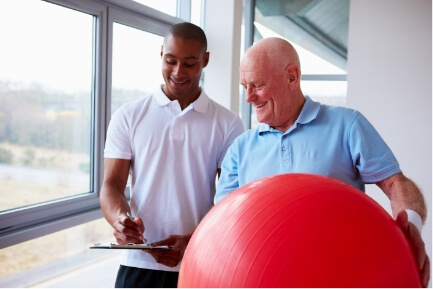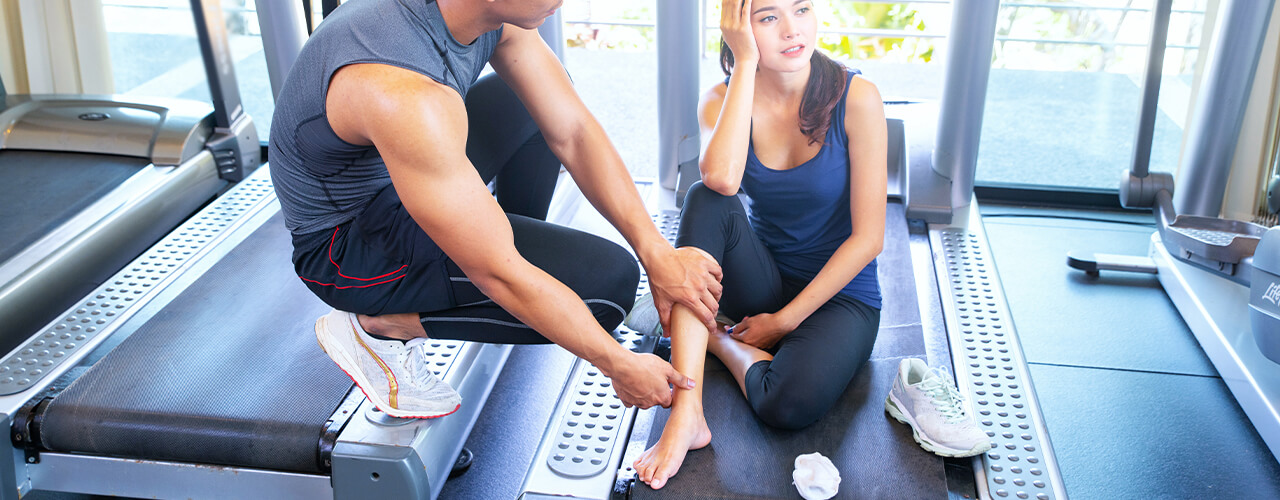Hip pain can manifest itself in a variety of ways. In some cases, patients may complain of hip pain following a strenuous workout. In other cases, a patient may complain of hip pain following a head-on collision in a car accident. While those two scenarios may represent opposite ends of the spectrum, patients may experience pain in both. The key distinction between those two cases is the mechanism of injury, or the amount of energy required to cause pain. Other important aspects of your injury include whether you were able to put weight on your leg or stand, whether you heard a ‘pop,’ and whether you noticed immediate swelling or bruising. If you notice any of these injury patterns, you should seek medical attention.
Understanding the Various Kinds of Hip Pain
Hip pain can be felt in a variety of locations, each of which corresponds to a different problem.
- Outside of the hip – Pain on the outside of the hip, the outer part of the buttock, or the upper thigh is frequently caused by problems with the tendons, ligaments, or muscles that surround the hip.
- The inside of the hip – Pain felt on the inside of the hip or in the groin is more likely to be caused by a problem with the hip joint itself, rather than problems with surrounding muscles or other soft tissues.
What Are the First Symptoms of Hip Pain?
- Pain in the hips or groins
This type of pain is usually felt between the hip and the knee. Hip pain can be felt while exercising, sleeping, or walking. It can result in hip motion loss.
Pain and soreness during or after exercise is frequently the first sign of hip arthritis. Hip pain can disrupt your sleep because it interferes with your natural movement at night. Furthermore, if hip pain prevents you from walking short or regular distances, see a specialist right away for a medical evaluation and treatment.
- Stiffness
Having difficulty putting on your shoes or socks is a common symptom of hip stiffness. It may also be difficult for you to bend down or pick something up from the ground.
- Limping
When you begin to limp when walking, this is a serious sign of a hip problem. Limping can be acute or chronic, and it can be treated by an orthopedist with proper medical care.
- Swelling and Tenderness of the Hip
Swelling and tenderness are other symptoms of a hip problem. Internal swelling can occur as well as swelling of the skin and muscles on the outside. If it becomes unbearable or does not go away within a few days, contact your doctor right away.
Depending on the source of the pain, these symptoms may vary. Hip pain, if left untreated, can lead to disability, which is why it is critical to consult with an experienced physician who specializes in hips and other joints.
Causes of Hip Pain
- Arthritis
- Injuries
- Cancer
- Pinched nerves
- Chronic disease, such as osteoporosis
Should You Visit a Doctor?
Not all types of hip pain necessitate a doctor’s visit. If your pain isn’t severe, you can try some at-home treatment options before scheduling an appointment. Here are some examples of at-home treatments that may help you feel better:
- Ice packs – Applying ice packs to your hip at 20-minute intervals may help to reduce inflammation and pain.
- Warm compresses – Warm compresses can help to loosen the muscles around the hip and relieve pain.
- Over-the-counter pain relievers – Ibuprofen, for example, is an over-the-counter medication that can reduce swelling and relieve pain.
- Resting the hip – While you wait for the injury to heal, avoid putting pressure on it or overworking it.
If at-home treatment measures do not relieve your hip pain within a week, it’s time to see a doctor. You should also seek medical attention right away if you are experiencing severe pain, are unable to bear weight on your hip, or notice a sudden change in the appearance of your hip.
Preparing for Your Visit
When you go to the doctor for hip pain, he or she will usually start with a physical exam. Most of the time, this exam will concentrate on your hip and the surrounding tissues. Prepare to respond to questions about how the pain feels and how it began. The doctor may also inquire whether you have tried any home remedies. If your doctor suspects an injury or structural problem with your hip, he or she may order an MRI or x-ray.
Your doctor may: Depending on the results of the exam and any ordered tests, your doctor may:
- Medication should be prescribed
- Request physical therapy.
- Plan additional testing.
- Suggest a surgical procedure, such as hip replacement.
Are You Looking for Relief for Your Hip and Knee Pain?
Pace Physical Therapy in San Jose, California specializes in non-surgical relief and recovery therapies for injuries. Our physical therapists in San Jose, CA are movement professionals who can help you heal easily and accomplish your physical goals. Do your knees feel sore, or do they feel as if, without warning, they could buckle under you? Do sharp hip pains find it hard to get up in the morning, walk about during the day, and lay down at night? Hip joint pain and knee pain, especially if you’re dealing with both, can seriously interfere with your life. Whatever could be uncomfortable for you, physical therapy may help you get safely and easily to the source of your problem without the need for harmful drugs or surgery. To alleviate your hip and knee pain entirely, make an appointment with Pace Physical Therapy in San Jose, CA, saving you the need for potentially harmful medicine or surgical correction. We strive every day to provide excellent service for all our patients because we understand it can be frustrating not being able to do what you love most due to an injury keeping us off the field or court! Contact us today to schedule your appointment!



